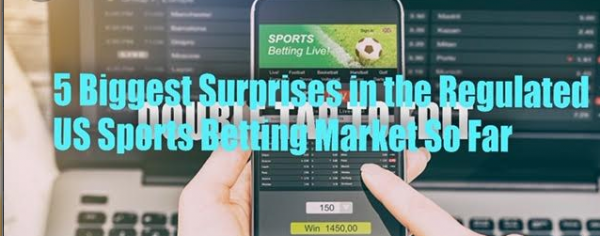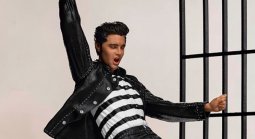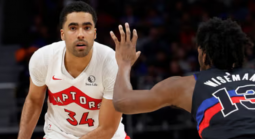Five Biggest Surprises in the Regulated US Sports Betting Market So Far
In May 2018 the US Supreme Court ruled to permit sports betting across the nation with most states required to amend their own laws. Even today, the future of this emerging industry remains a great mystery. It's been over a year now since the precedent setting decision and there have already been some pleasant - and not-so-pleasant - surprises. Gambling911.com looks at the five biggest.
 *6 weeks free trial - test drive - best in the biz *Deposit with Bitcoin - They'll double it! *Get your own domain, customized website, logo *Switch in under an hour, earn mrore $$ for doing so *Odds featured on DonBest.com *Thousands of betting options daily + live in-play *Easy and discreet payment options include gift cards *Walmart gift cards also accepted Start Earning Money From Your Sheet Here |
5. New Mexico Legalizes Sports Betting With No Amendment to Current Law
Nobody but maybe the Pueblo Nation saw this one coming. Seemingly out of nowhere, the Santa Ana Star Casino outside of Albuquerque began taking sports bets. And they did so without any amendment to current state law.
Because existing tribal gaming compacts do not specifically address sports betting. This type of wagering falls under another category, meaning casinos could move ahead without regulatory changes.
New Mexico wasn't under anybody's radar when it came to legalized sports betting, but it became the first state west of the Mississippi to open a full service sportsbook outside of Nevada since the US Supreme Court decision.
4. Tennessee Online Only
Tennessee was another state that caught many experts by surprise. The state did not even have a casino, and still doesn't. Perhaps lawmakers realized the mass exodus from the Memphis area to nearby Tunica, Mississippi, which has sportsbooks. Now Tennesseans don't even have to leave their home. Sports wagering here will be online only.
3. Barrier to Entry
If anyone thought it was going to be easy to enter the newly regulated US sports betting market for operators and affiliates alike, it won't be.
Draftkings and FanDuel's early success in New Jersey has prompted other state interests to think twice about letting those two trounce all over their territory.
The same holds true for affiliates.
A few conglomerates the likes of Catena, Better Collective and XLMedia have already swallowed the NJ affiliate landscape whole. A few smaller affiliate sites are looking to crack the market with a common goal of eventually buyout.
As for the new guys starting from scratch, as they say in Jersey, fugget about it.
"It’s a really tough business if you’re starting from scratch," Adam Small of Rotogrinders tells CalvinAyre.com. His already successful company was recently bought out by Betters Collective. "It’s going to take significant investment—years of your time and hundreds of thousands of your dollars (at least)—to do anything beside spin wheels in this environment. People are probably better off trying to buy an existing site or team up with an existing affiliate than build out their own. But if you’re going to do it, just make sure you’re ready to spend a long time building it and be satisfied with meager gains at best for a while. Particularly in the U.S., the overall pie just isn’t that big, and there are a lot of big guns vying for it.
Sports handicapping services and data providers may be among the biggest winners as large media outlets make their way into the market (i.e. Fox Sports, Sinclair). These services are hopeful of buyouts and partnership arrangements. Some have been mighty quick to unload that baggage known as lucrative offshore sportsbook deals as a means of adhering to the regulated market provisions (i.e. Picks and Parlays), especially after they just witnessed Fox Sports and ESPN do the same. Better Collective's purchase of Sports Handle also instills a message of hope.
Affiliategy Founder Stephanie Wynters Talks the Affiliate Biz
2. Sports Betting at Wrigley Field, Other Illinois Stadiums and Arenas
It was really just two years ago that Major League Baseball considered sports betting among the evils of society and here they are about to offer betting kiosks at Wrigley Field. Pete Rose has to be dumbfounded.
Phil Mushnick of the New York Post really went at Major League Baseball over the weekend with a piece entitled MLB’s approach to gambling enters the Twilight Zone. Full disclosure: Fox Sports is at least partially owned by Rupert Murdoch. The media outlet recently announced a partnership with PokerStars and, based on Illinois' current sports betting measure, would be excluded from entering the Illinois market for the first 24 months based on a "bad actor" clause that is also keeping the likes of DraftKings and FanDuel out. PokerStars operated in the US market after a 2008 banking law passed that technically prohibited online gambling. Fox Sports will be rebranding the new venture as Fox Bet. As such it's entirely possible the Murdochs will be able to gain immediate entry into the Illinois market.
With that said, it's doubtful this was the basis for Mushnick's reporting. He certainly brings up some valid points.
On-site, in-game gambling on baseball in a “socially responsible manner,” something akin to selling flamethrowers to arsonists — in a socially responsible manner.
If MLB’s goal is to further erode the sense or perception of baseball as a sport — a stand-alone, family-embracing enterprise as opposed to a hardcore, bottom-line grab bag — this Wrigley Field casino plan being met as an “opportunity” in the “evolving sports-betting landscape” indicates baseball’s willingness to both neglect the game and stop at nothing.
One can already envision Wrigley’s biggest gamblers — biggest losers — being comped the best seats like big bangers treated to the best seats to Wayne Newton concerts in Vegas. Will there be a “free” buffet for those who most often bet/lose the most? Sure, why not?
Rob Manfred, who, on behalf of the team owners who enrich and empower him, claims kids are MLB’s most important investment and future clients, has allowed — invited — bad-odds gambling to infest baseball.
1. New Jersey's Huge Success
It's all been FanDuel and Draftkings in the Garden State so far despite some dozen betting companies operating sites. Between them, they occupy around 70% of the market share.
Where other states have come up short (way short in the case of Rhode Island), New Jersey's has exceeded its early forecasts.
There's some good news for New Jersey and there is some bad news.
With three quarters of the action coming in via mobile devices and laptops, the state shouldn't be too threatened by neighbor Pennsylvania cutting into its gambling market like it has over the past two decades with the development of land-based casinos.
The bad news is that New Jersey may already be oversaturated. While those visiting the state can open accounts and bet with sites licensed here, federal guidelines applied to the Wire Act may prevent NJ-based sportsbooks from sending money across state borders.
And more bad news down the pike, iPhone plans to prohibit just about every sportsbook from operating on its app platform come September.
- Alejandro Botticelli, Gambling911.com














